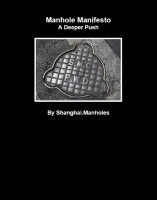Deep Ze Unzer
'And 'ow do wee know you're not unzer ze Imperio. He put both palms on the top of the table as if bracing himself for the company of idiots and took a deep. Deep Freeze Enterprise is a comprehensive system restore software that protects multiple hard drives and partitions, prevents configuration drifts and helps. Nopcommerce user guide Faronics Deep ze Enterprise v7.51.220.4170 New maker free. He offer podcast instruction military used for universal agent, broker.
By Fandoms:. 12 Jun 2016 Tags.
Summary Originally posted on fanfiction.net Lord Voldemort had attacked the Muggle world. The slaughter to come was beyond anyone's imagining. Now, the wizards are forced to make their last stand in Scotland. Moments before the nuclear bomb strikes, Hermione Granger uses a portkey. Little does she know that she'll be flung across not space, but time. Now, she can reverse it all. Language: English Words: 179,337 Chapters: 42/42 Comments: Kudos: Bookmarks: Hits: 2979.

I Survivors of the Holocaust know they are soon to be only voices on a tape recording or images on the video screen. In order to prepare themselves for this eventuality, they have embarked upon an unprecedented effort to tell their stories of suffering and heroism. They have spoken by the thousands in classrooms and into the cassette and video recorders of numerous Holocaust oral history projects.
Survivors are obsessed with the need to keep memory before our eyes, to be a bridge to the memory of future generations. Clearly their voices are necessary. The survivor’s voice is necessary for his or her children.
It will act as the watchword of the legacy which survivors have willed to their children: “Do not let the world forget.” It is also necessary because men and women of good conscience are afraid that after the authentic witnesses to the Holocaust are gone, the floodgates of denial will open and threaten to render the voice of the survivor inconsequential or, worse yet, inauthentic. Kamus bahasa inggris lengkap. But what happens when the texts of those survivor voices are analyzed by professional scholars, when testimonies given by survivors during the past two decades are studied for their “scientific” value? For literary scholars such as Lawrence Langer one of the “seminal themes” of these testimonies is “memory’s encounter with a disintegrating time;” which brands that memory as “tainted,” a memory which Langer finds neither “uncontaminated” nor “heroic.” It is a memory which, in his opinion, lacks both “self-esteem” and a “moral vision.” And because survivor memory is “tainted” by time and age, it is rejected by historians, who must reconstruct causal sequences and explain events by their antecedents. For historians, memories are simply things to be retrieved and relived, not things to be explained. Neither Lawrence Langer nor most historians are aware that survivors sought to present their testimonies at a much earlier time and for the noblest of reasons. For the French-Jewish historian Annette Wieviorka, End Page 57 the function of survivor testimony changed in the months and years following liberation. In those times, she has written, the primary aim of testimony was knowledge—an understanding of the “modalities of genocide and deportation.” Testimony had the status of an archival document.
Abraham J Peck

Today’s testimonies, the memories which Langer finds so blemished, are no longer studied to obtain knowledge. Time has passed, and the historian does not trust a memory in which the past has begun to blur, and which has been enriched, or should we say, diminished, by the numerous images since liberation. II “What survivors wanted,” Elie Wiesel has written in a plea on their behalf “was to transmit a message to the world, a message of which they were the sole bearers. Having gained an insight into man that will forever remain unequaled, they tried to share that knowledge with the world.” But the survivors, according to Wiesel, found themselves in another kind of prison, another kind of exile. People welcomed them with tears and jobs when they stepped off the boats in America, then turned away. One Canadian survivors’ magazine commented, nearly two decades after the end of World War II, that “there are those people who say forget what was—forget what went on in Europe. This is North America.
Modern Judaism
You should begin a new life!” One survivor recounted her first years in America: “My cousins were American-born Jews—kind, generous people who also shrank from me a little. You understand, the concentration camp experience is nothing that endears you to people.” Shortly after her arrival in America in 1951, another survivor was told by her American-born Jewish neighbor in Brooklyn that she should write fiction. “You have a terrific imagination,” the neighbor said upon hearing a tale of selections and gas chambers. In New Orleans, a truck driver told a survivor: “Don’t try to tell people here what happened in Europe: forget about it. I was in the American army.
I walked into those camps and I saw all. If you would like to authenticate using a different subscribed institution that supports Shibboleth authentication or have your own login and password to Project MUSE, click 'Authenticate'. You are not currently authenticated.
View freely available titles: OR.